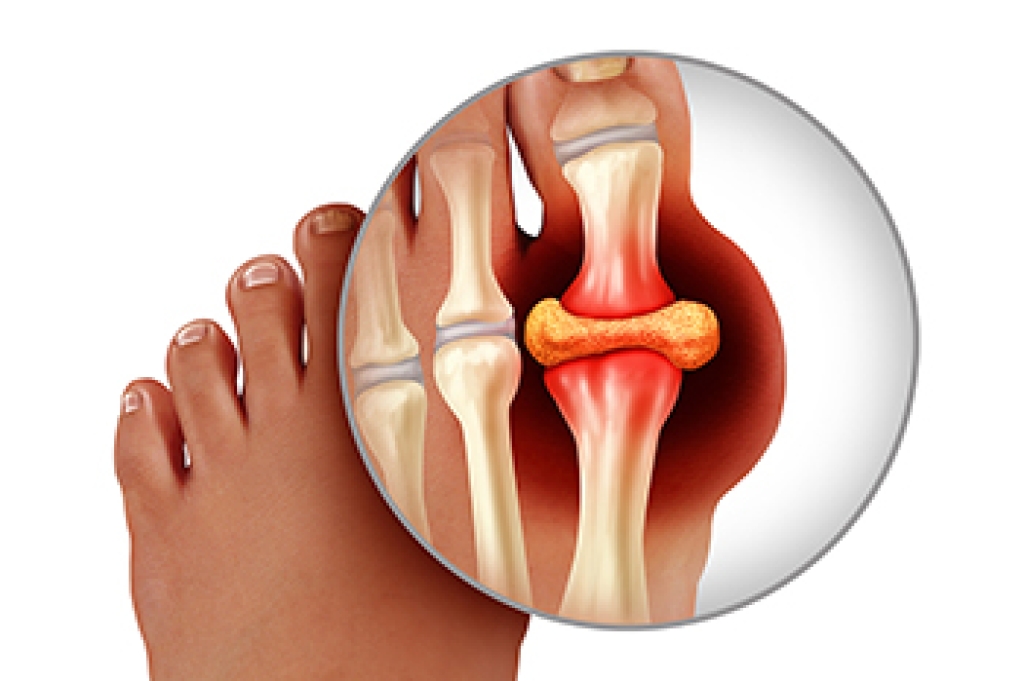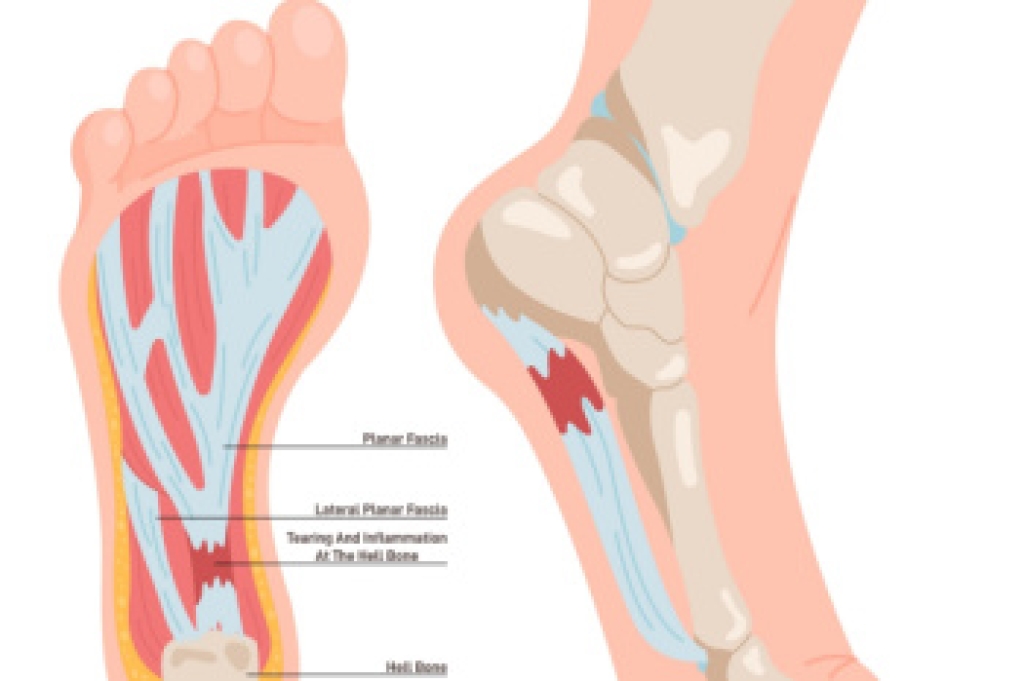
Gout and pseudogout both cause sudden joint pain in the feet, but they come from different types of crystal buildup. Gout occurs when uric acid crystals form in a joint, usually in the big toe, causing redness, swelling, and intense pain. Pseudogout occurs when calcium crystals form in the cartilage and move into the joint, often affecting the ankle or midfoot. Both can cause warmth, tenderness, and stiffness that make it difficult to stand or walk. The pain from pseudogout can last longer and affect more than one joint, while gout usually affects one joint at a time. A podiatrist can determine which condition is present by examining the joint, ordering X-rays, or testing a small sample of joint fluid. Early diagnosis helps reduce pain and protect the joints from lasting damage. If you suffer from gout flare-ups, it is suggested that you make an appointment with a podiatrist for a diagnosis and treatment.
Gout is a painful condition that can be treated. If you are seeking treatment, contact one of our doctors from Advanced Podiatry. Our doctors will treat your foot and ankle needs.
What Is Gout?
Gout is a form of arthritis that is characterized by sudden, severe attacks of pain, redness, and tenderness in the joints. The condition usually affects the joint at the base of the big toe. A gout attack can occur at any random time, such as the middle of the night while you are asleep.
Symptoms
- Intense Joint Pain - Usually around the large joint of your big toe, and it most severe within the first four to twelve hours
- Lingering Discomfort - Joint discomfort may last from a few days to a few weeks
- Inflammation and Redness -Affected joints may become swollen, tender, warm and red
- Limited Range of Motion - May experience a decrease in joint mobility
Risk Factors
- Genetics - If family members have gout, you’re more likely to have it
- Medications - Diuretic medications can raise uric acid levels
- Gender/Age - Gout is more common in men until the age of 60. It is believed that estrogen protects women until that point
- Diet - Eating red meat and shellfish increases your risk
- Alcohol - Having more than two alcoholic drinks per day increases your risk
- Obesity - Obese people are at a higher risk for gout
Prior to visiting your podiatrist to receive treatment for gout, there are a few things you should do beforehand. If you have gout you should write down your symptoms--including when they started and how often you experience them, important medical information you may have, and any questions you may have. Writing down these three things will help your podiatrist in assessing your specific situation so that he or she may provide the best route of treatment for you.
If you have any questions, please feel free to contact our offices located in Needham, Norwood, and Hanover, MA . We offer the newest diagnostic and treatment technologies for all your foot care needs.




